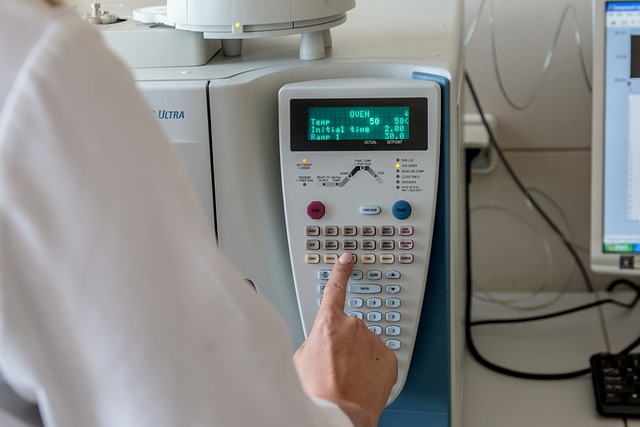Iron deficiency anemia, a common global disorder, is detected in the UK through blood tests like the UK Testosterone Blood Test and complete blood count (CBC). Key indicators include low hemoglobin (Hb) levels, ferritin below 20-400 mcg/mL, and symptoms like fatigue and pale skin. Early diagnosis allows for treatment with dietary changes or iron supplements to prevent long-term issues. Healthcare providers interpret these tests alongside medical history, ensuring accurate diagnoses and appropriate management, including maintaining optimal testosterone levels.
In the UK, iron deficiency anaemia (IDA) is a common condition, often overlooked but with significant health implications. This article explores how blood tests play a pivotal role in detecting IDA, offering a non-invasive method to identify this hidden nutritional deficit. We delve into the impact of IDA on the body and guide readers through interpreting blood test results for iron levels, highlighting the available treatment options. Understanding these steps is crucial in managing anaemia effectively.
- Understanding Iron Deficiency Anemia and Its Impact
- The Role of Blood Tests in Diagnosis
- Interpreting Results and Treatment Options
Understanding Iron Deficiency Anemia and Its Impact
Iron deficiency anemia is a common blood disorder affecting individuals across the UK and globally. It occurs when your body doesn’t have enough iron, a mineral essential for producing red blood cells (RBCs). These cells are responsible for carrying oxygen from the lungs to every part of the body, so their diminished number or functionality can lead to various health issues. Understanding this condition is crucial as it can significantly impact overall well-being.
The impact of iron deficiency anemia ranges from mild fatigue and weakness to more severe symptoms such as shortness of breath, dizziness, pale skin, and even heart problems. In children, it may affect growth and cognitive development. The condition is often detected through a simple UK testosterone blood test or complete blood count (CBC) that measures hemoglobin levels and identifies abnormal red blood cells. Early detection and treatment with iron supplements or dietary adjustments can prevent long-term complications and restore overall health.
The Role of Blood Tests in Diagnosis
Blood tests play a pivotal role in diagnosing iron deficiency anemia, offering crucial insights into an individual’s overall health and nutritional status. In the UK, a common approach to screening involves assessing hemoglobin (Hb) levels, which are indicative of red blood cell health and oxygen-carrying capacity. A low Hb level can signal anemia, prompting further investigation.
Additionally, these tests may measure ferritin, a protein that stores iron in the body. Ferritin levels below 12 mg/L in women or 15 mg/L in men suggest potential iron deficiency. Combining Hb and ferritin results with other relevant data, such as symptoms and medical history, facilitates a more comprehensive diagnosis, especially when considering conditions like low testosterone, which can also impact blood parameters.
Interpreting Results and Treatment Options
Interpretation of results is a crucial step after undergoing an iron deficiency anemia blood test in the UK. Your healthcare provider will analyse the levels of iron, ferritin, and hemoglobin in your blood sample. A normal range for ferritin is typically between 20-400 micrograms per millilitre (mcg/mL), while iron levels should fall within 12-167 mcg/dL. If your results indicate low ferritin or iron levels, it suggests potential iron deficiency anemia.
Treatment options depend on the severity of the condition and may include dietary changes, such as increasing intake of iron-rich foods like leafy greens and lean meats, or supplements to boost iron levels. In some cases, medical interventions like blood transfusions might be recommended. Regular monitoring is essential to ensure successful management and restoration of iron levels to their optimal range for overall health, including maintaining adequate testosterone levels, which can be affected by severe anemia.
Iron deficiency anemia, while common, can significantly impact overall health. Fortunately, blood tests play a crucial role in its diagnosis, allowing for early detection and effective treatment. By understanding the results of these tests, individuals in the UK can take proactive steps to manage their iron levels and prevent further complications. This knowledge empowers folks to make informed decisions about their well-being, ensuring optimal health outcomes.
